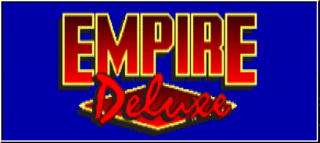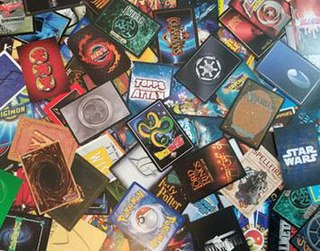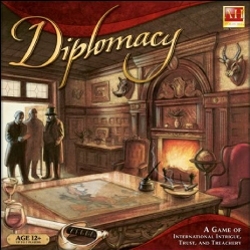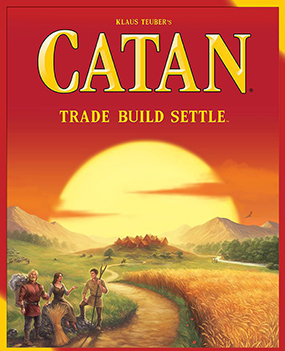
Sid Meier's Civilization is a 1991 turn-based strategy 4X video game developed and published by MicroProse. The game was originally developed for MS-DOS running on a PC, and it has undergone numerous revisions for various platforms. The player is tasked with leading an entire human civilization over the course of several millennia by controlling various areas such as urban development, exploration, government, trade, research, and military. The player can control individual units and advance the exploration, conquest and settlement of the game's world. The player can also make such decisions as setting forms of government, tax rates and research priorities. The player's civilization is in competition with other computer-controlled civilizations, with which the player can enter diplomatic relationships that can either end in alliances or lead to war.

Freeciv is a single- and multiplayer turn-based strategy game for workstations and personal computers inspired by the proprietary Sid Meier's Civilization series. It is available for most desktop computer operating systems and available in an online browser version. Released under the GNU GPL-2.0-or-later, Freeciv is free and open-source software. The game's default settings are closest to Civilization II, in both gameplay and graphics, including the units and the isometric grid. However, with a lot of multiplayer games being played in longturn communities, rulesets and additional variants have evolved away from the original ruleset. Freeciv is playable online at Longturn.net, freecivx.net, freecivweb.org and some temporary private servers.
A massively multiplayer online role-playing game (MMORPG) is a video game that combines aspects of a role-playing video game and a massively multiplayer online game.

A play-by-mail game is a game played through postal mail, email, or other digital media. Correspondence chess and Go were among the first PBM games. Diplomacy has been played by mail since 1963, introducing a multi-player aspect to PBM games. Flying Buffalo Inc. pioneered the first commercially available PBM game in 1970. A small number of PBM companies followed in the 1970s, with an explosion of hundreds of startup PBM companies in the 1980s at the peak of PBM gaming popularity, many of them small hobby companies—more than 90 percent of which eventually folded. A number of independent PBM magazines also started in the 1980s, including The Nuts & Bolts of PBM, Gaming Universal, Paper Mayhem and Flagship. These magazines eventually went out of print, replaced in the 21st century by the online PBM journal Suspense and Decision.

Scrabble is a word game in which two to four players score points by placing tiles, each bearing a single letter, onto a game board divided into a 15×15 grid of squares. The tiles must form words that, in crossword fashion, read left to right in rows or downward in columns and are included in a standard dictionary or lexicon.

Ultima is a series of open world fantasy role-playing video games from Origin Systems, created by Richard Garriott. Electronic Arts has owned the brand since 1992. The series had sold over 2 million copies by 1997.

Zork is a text adventure game first released in 1977 by developers Tim Anderson, Marc Blank, Bruce Daniels, and Dave Lebling for the PDP-10 mainframe computer. The original developers and others, as the company Infocom, expanded and split the game into three titles—Zork I: The Great Underground Empire, Zork II: The Wizard of Frobozz, and Zork III: The Dungeon Master—which were released commercially for a range of personal computers beginning in 1980. In Zork, the player explores the abandoned Great Underground Empire in search of treasure. The player moves between the game's hundreds of locations and interacts with objects by typing commands in natural language that the game interprets. The program acts as a narrator, describing the player's location and the results of the player's commands. It has been described as the most famous piece of interactive fiction.

The Marathon Trilogy is a science fiction first-person shooter video game series from Bungie, originally released for the Classic Mac OS. The name of the series is derived from the giant interstellar colony ship that provides the main setting for the first game; the ship is constructed out of the Martian moon Deimos. The series is often regarded as a spiritual predecessor of Bungie's Halo series.

Axis & Allies is a series of World War II strategy board games. The first version was initially published in 1981 and a second edition known colloquially as Axis & Allies: Classic was published in 1984. Played on a board depicting a Spring 1942 political map of Earth divided by territories, players take the role of one or more of the five major belligerents of World War II: the Axis powers of Germany and Japan; and the Allied powers of the Soviet Union, the United Kingdom, and the United States. Turns rotate among these belligerents, who control armies of playing pieces with which they attempt to capture enemy territories, with results determined by dice rolls. The object of the game is to win the war by capturing enough critical territories to gain the advantage over the enemy.

Puerto Rico is a Euro-style board game designed by German designer Andreas Seyfarth and published in 2002 in a German-language edition by Alea. Players assume the roles of colonial governors on the island of Puerto Rico during the age of Caribbean ascendancy. Puerto Rico was the highest-rated game on the board game website BoardGameGeek for over five years, until it was surpassed by Agricola. The aim of the game is to amass victory points in two ways: by exporting goods and by constructing buildings.

The Lord of the Rings Trading Card Game is an out-of-print collectible card game produced by Decipher, Inc. Released November 2001, it is based on Peter Jackson's The Lord of the Rings film trilogy and the J. R. R. Tolkien novel on which the films were based. Decipher also had the rights to The Hobbit novel but did not release any cards based on it. In addition to images taken from the films, in 2004 Weta Workshop produced artwork depicting characters and items from the novel absent from the films for use on cards. In 2002, LOTR TCG won the Origins Awards for Best Trading Card Game of 2001 and Best Graphic Presentation of a Card Game 2001. Decipher's license to The Lord of the Rings expired on July 30, 2007, after which all official promotion and distribution of the game stopped.
Atlantis is a free open-ended multi-player computer moderated fantasy turn-based strategy game for any number of players. It is played via email. The game world is populated by many races and monsters. Players may attempt to carve out huge empires, become master magicians, intrepid explorers, rich traders or any other career that comes to mind and interact with other players in trade, war and alliances. There is no declared winner of the game, players set their own objectives, and one can join at any time.

Warhammer is a tabletop miniature wargame with a medieval fantasy theme. The game was created by Bryan Ansell, Richard Halliwell, and Rick Priestley, and first published by the Games Workshop company in 1983.

Meridian 59 is a 1996 video game developed by Archetype Interactive and published by The 3DO Company. It was the first 3D graphical massively multiplayer online role-playing game (MMORPG) and one of the longest running original online role-playing games. The development team included John Hanke, who later founded Niantic, Inc. and codeveloped Google Earth and Pokémon Go.

C-evo is a free turn-based strategy computer game whose source code is in the public domain by German programmer and designer Steffen Gerlach.
Variations of basketball are games or activities based on, or similar in origin to, the game of basketball, in which the player utilizes common basketball skills. Some are essentially identical to basketball, with only minor rules changes, while others are more distant and arguably not simple variations but distinct games. Other variations include children's games, contests or activities intended to help the player practice or reinforce skills, which may or may not have a competitive aspect. Most of the variations are played in informal settings, without the presence of referees or other officials and sometimes without strict adherence to official game rules.

Empire is a 1977 turn-based wargame with simple rules. The game was conceived by Walter Bright starting in 1971, based on various war films and board games, notably Battle of Britain and Risk. The game was ported to many platforms in the 1970s and 1980s. Several commercial versions were also released such as Empire: Wargame of the Century, often adding basic graphics to the originally text-based user interface.

A collectible card game (CCG), also called a trading card game (TCG) among other names, is a type of card game that mixes strategic deck building elements with features of trading cards. It was introduced with Magic: The Gathering in 1993.

Diplomacy is a strategic board game created by Allan B. Calhamer in 1954 and released commercially in the United States in 1959. Its main distinctions from most board wargames are its negotiation phases and the absence of dice and other game elements that produce random effects. Set in Europe in the years leading to the First World War, Diplomacy is played by two to seven players, each controlling the armed forces of a major European power. Each player aims to move their few starting units and defeat those of others to win possession of a majority of strategic cities and provinces marked as "supply centers" on the map; these supply centers allow players who control them to produce more units. Following each round of player negotiations, each player can issue attack and support orders, which are then executed during the movement phase. A player takes control of a province when the number of provinces that are given orders to support the attacking province exceeds the number of provinces given orders to support the defending province.

Catan, previously known as The Settlers of Catan or simply Settlers, is a multiplayer board game designed by Klaus Teuber. It was first published in 1995 in Germany by Franckh-Kosmos Verlag (Kosmos) as Die Siedler von Catan. Players take on the roles of settlers, each attempting to build and develop holdings while trading and acquiring resources. Players gain victory points as their settlements grow and the first to reach a set number of victory points, typically 10, wins. The game and its many expansions are also published by Catan Studio, Filosofia, GP, Inc., 999 Games, Κάισσα (Káissa), and Devir. Upon its release, The Settlers of Catan became one of the first Eurogames to achieve popularity outside Europe. As of 2020, more than 32 million copies in 40 languages had been sold.

















